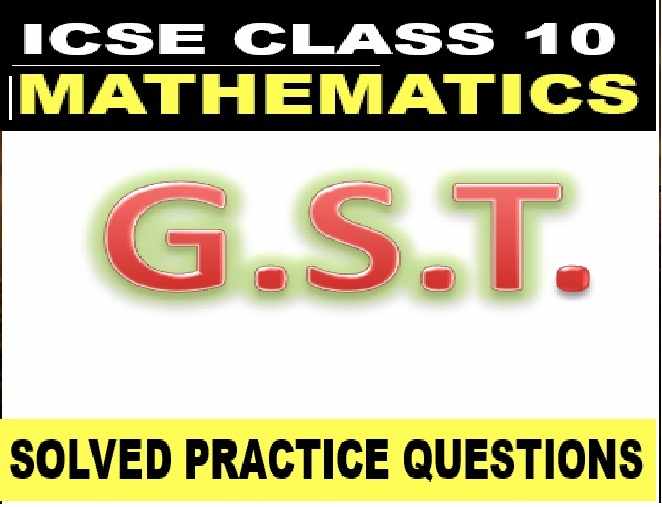Strange Meeting Short Answer Workbook Questions ISC English Rhapsody Solutions . Ch-5 Strange Meeting composed by Wilfred Owen. Extra Short Answer questions are also added for complete practice. Visit official website CISCE for detail information about ISC Board Class-11 English.

Strange Meeting Short Answer Workbook Questions ISC English Rhapsody Solutions
| Board | ISC |
| Publisher | Evergreen Publications |
| Subject | English |
| Class | 11 |
| Book Name | Rhapsody (A collection of ISC Poem ) |
| Chapter-5 | Strange Meeting — Wilfred Owen |
| Topics | Short Answer Questions |
Short Answer Questions
Ch-5 Strange Meeting ISC English Rhapsody Workbook Solutions composed by Wilfred Owen
Questions: (i) What did the British soldier see in the dark tunnel?
Answer: British soldier saw encumbered sleepers who seemed to be dead. One sleepers sprang up and stared back at him with piteous recognition in his eyes. This soldier, who the speaker recognized by his smile to be in Hell, engaged the speaker in conversation.
Questions: (ii) What did the dead soldier tell about his unfulfilled desires?
Answer: The dead soldier bewail, his undone years and the hopelessness that now defines his existence. He told of his past life when he followed the wild beauty in the world, a beauty that is not calm or easily defined. He also spoke of his desire to share truths that lie too deep for taint and how he wished to pour his spirit out, not through the wounds of war but into life.
Questions: (iii) On what note did the poem end? What message does the poet want to convey?
Answer: The poem ends words “Let us sleep now…” which is spoken by the dead soldier. The message that the poet wants to convey is the tragedy and futility of war, the shared humanity among men on both sides, and the needless loss of life due to war
Questions: (iv) In what way is the eerie atmosphere in the tunnel thematically appropriate?
Answer: In the tunnel mirrors the dark and distressing theme of war and death. This gloomy setting serves to underscore the horror of war, the wastage of life, and the shared suffering experienced by soldiers, regardless of which side they are on. The tunnel, a long, dark, and confined space, filled with the dead,
Extra Short Answer Questions of Strange Meeting (Rhapsody)
Questions: 1. What is the effect of the phrase “Foreheads of men have bled where no wounds were”?
Answer: The phrase “Foreheads of men have bled where no wounds were” conveys the psychological trauma inflicted by war. Although there may be no physical wounds, the mental and emotional suffering is so intense it’s as if they’ve been physically injured. It speaks to the invisible scars carried by those who have experienced the horrors of war.
Questions: 2. What is the significance of the poem being set in ‘Hell’?
Answer: The setting of the poem in ‘Hell’ signifies the harsh and horrifying reality of war. It underscores the pain, suffering, and moral degradation associated with war, equating the battlefield with Hell itself. It’s a potent metaphor for the destructive and inhuman nature of war.
Questions: 3. What animal is referenced to describe the potential future actions of men?
Answer: The animal referenced to describe the potential future actions of men is a ‘tigress.’ The use of this animal might symbolize ferocity, swiftness, and potential for violence.
Questions: 4. What does the speaker mean by the “undone years”?
Answer: When the speaker mentions the “undone years,” it refers to the years lost due to war, the years that could have been spent living rather than fighting and dying. It represents the lost potential and wasted time caused by war.
Questions: 5. How is the concept of time portrayed in the poem?
Answer: The concept of time in this poem is portrayed as relentless and indifferent. It “mocks the steady running of the hour,” suggesting that time moves forward regardless of human suffering or joy. It can also be seen as wasted in the context of war and the “undone years.”
Questions: 6. Why does the speaker use the phrase “cess of war”?
Answer: The phrase “cess of war” is used to convey the filthiness and waste of war. The word “cess” often refers to a tax or levy, but it can also mean a swamp or a cesspool. Here, Owen is likely using it to imply that war is a cesspool, a disgusting and wasteful place filled with death and destruction.
Questions: 7. How does Owen present the relationship between the speaker and the enemy soldier?
Answer: Owen presents the relationship between the speaker and the enemy soldier as complicated but deeply human. Despite being enemies in life, their encounter in the afterlife is marked by recognition and empathy. They share a common humanity, having both been victims of the same war. This is indicated in the lines “I am the enemy you killed, my friend” and “I knew you in this dark.”
Questions: 8. How does the speaker describe the hall they stand in?
Answer: The speaker describes the hall they stand in as a ‘sullen’ place, indicating a gloomy, dismal, or melancholy atmosphere.
Questions: 9. What kind of ‘smile’ identifies their location as Hell?
Answer: The kind of ‘smile’ that identifies their location as Hell is described as a ‘dead’ smile. This phrase suggests an unnatural or eerie lack of life or warmth, symbolizing the horror and despair of Hell.
— : End of Strange Meeting Short Answer Workbook Questions ISC English Rhapsody Solutions : —
Return to – Rhapsody Workbook Answer of ISC Poem for Class 11 English
Thanks
Please, Share with your friend


